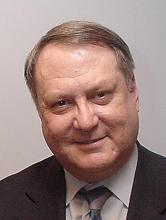By George Kane
 A sad result of November’s election was the loss by Congressman Peter Stark, a Democrat from the southern region of the San Francisco Bay Area, ending a 40-year stint. As every avid secularist in America knew, Stark was Congress’ only professed non-believer in a supernatural god. That role will now be filled by Kyrsten Sinema of Arizona, who is also an out-of-the-closet bisexual. In Wisconsin, Tammy Baldwin won election to the Senate, defeating former Governor Tommy Thompson. Baldwin, an open lesbian, is one of several freshman legislators who refuse to state their religious affiliation.
A sad result of November’s election was the loss by Congressman Peter Stark, a Democrat from the southern region of the San Francisco Bay Area, ending a 40-year stint. As every avid secularist in America knew, Stark was Congress’ only professed non-believer in a supernatural god. That role will now be filled by Kyrsten Sinema of Arizona, who is also an out-of-the-closet bisexual. In Wisconsin, Tammy Baldwin won election to the Senate, defeating former Governor Tommy Thompson. Baldwin, an open lesbian, is one of several freshman legislators who refuse to state their religious affiliation.
On the whole, it was an encouraging election for atheists. Every major atheist organization, including Minnesota Atheists, strongly supports legal recognition of same-sex marriage, as the only arguments against it are based on religious beliefs, and the campaigns against it are heavily funded by churches. Until this November, same-sex marriage has been defeated in more than 30 straight elections, but the tide has now dramatically shifted. Voters in Washington, Maryland, and Maine approved same-sex marriage, while here in Minnesota the constitutional amendment to define marriage as existing only between a man and a woman was defeated. A constitutional amendment on the Florida ballot would have struck down that state’s Blaine Law, and permitted direct taxpayer funding to churches. It was also defeated.
Evangelical Christians have admitted that the election was a disaster for them, and some worry that they will become marginalized. Nevertheless, liberal pundits have been too hasty to characterize the religiously unaffiliated as a permanent Democratic constituency. The category “religiously unaffiliated” has political identity only in that it excludes Evangelical Christians. It is otherwise meaningless because the political interests of atheists have nothing in common with those of self-described “spiritual God-believers” who are lumped into the category with them.
Organized atheists are Establishment Clause absolutists. We are united in our demand for separation of church and state. Those who consider themselves spiritual, but just don’t count themselves as members of any particular denomination, have no such commitment. To their credit, they are not influenced by the religious arguments against homosexuality, abortion, and contraception; on these issues we are on the same side. But opposition to government-sponsored prayer, to Ten Command-ments plaques at city halls and courthouses, to creches in public parks, to “In God We Trust” on our money, and to children in public schools being asked to recite the Pledge of Allegiance including the phrase “under God” comes only from atheists. We will not count many unaffiliated spiritual God-believers who take an interest in these issues. The danger for committed secularists is that the campaign strategists will regard us as a homogeneous group and count our votes as “locked up” because of campaign support for gay and reproductive rights. Atheists must stake out a distinct political identity.
While churches are free to speak out on any issues that concern them, they may not engage in electoral campaigns or endorse candidates for office. This restriction is a condition of their tax exemption, because donations to churches are tax exempt, while donations to political campaigns are not.
Enforcement of tax law is the responsibility of the Internal Revenue Service, but for the past three years, they have not acted on complaints of partisan political activity by churches. In 2009, a federal court in Minnesota ruled that an IRS reorganization putting responsibility for authorizing tax audits of churches into the hands of low-ranking officials violated its own rules. This should be trivial to correct, but the IRS has been paralyzed by it. This intransigence has encouraged political activism by the clergy.
Since then, the conservative Alliance Defending Freedom has been encouraging clergy to endorse candidates in their sermons, in the hope of overturning the tax restriction on political campaigning in a court case. In October, the Alliance staged “Pulpit Freedom Sunday.” They enlisted more than 1500 pastors who endorsed candidates from the pulpit and then sent a record of their statement to the IRS, hoping their challenge would eventually end up in court.

